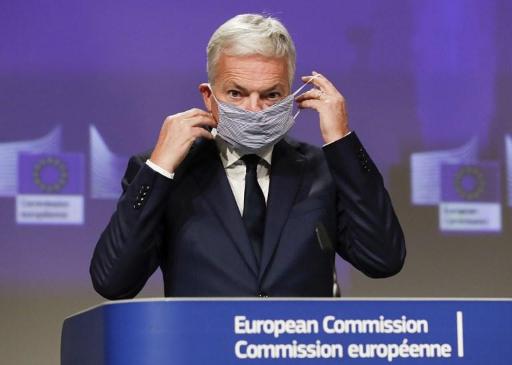The European Commission presented member States with a number of agreements aimed at untangling the web of different travel restrictions in the European Union on Friday.
Among them were a common colour code, as well as threshold values for the introduction of restrictive measures. Those measures, however, remain a national competence.
"Our right to free movement has been seriously hampered by the coronavirus pandemic. For the many citizens who have to move around on a daily basis, the cacophony of national rules makes things very complicated. We want to make things simpler," said justice commissioner Didier Reynders.
Member States currently use different criteria for imposing travel restrictions, but the Commission would like them to base future decisions on common thresholds that take into account the recent number of infections, the percentage of positive tests and the total number of tests carried out.
Related News
- Belgium colours light orange again on European coronavirus map
- Germany to try to harmonise travel restrictions across EU
- Spain becomes red travel zone for Belgians from Friday
National authorities must send this data to the European Centre for Disease Prevention and Control (ECDC), which will then publish a map with common colour codes every week.
An area of high coronavirus circulation coloured red on the European map will then be automatically coloured red for all Member States. Green zones should not be subject to travel restrictions.
Nor does the Commission support Member States simply refusing entry to people from red risk zones. The authorities can still impose a quarantine or test on them, however.
It is up to the member States to decide how long a quarantine should last, but here too, the Commission is encouraging EU-wide coordination.
Finally, to give travellers greater certainty and predictability, the Commission proposes that member countries notify other countries, and the Commission, of new travel restrictions in the week before they are introduced.
It remains to be seen to what extent the States will accept these recommendations. After all, they have the final say in protecting public health on their territory.
The Brussels Times

